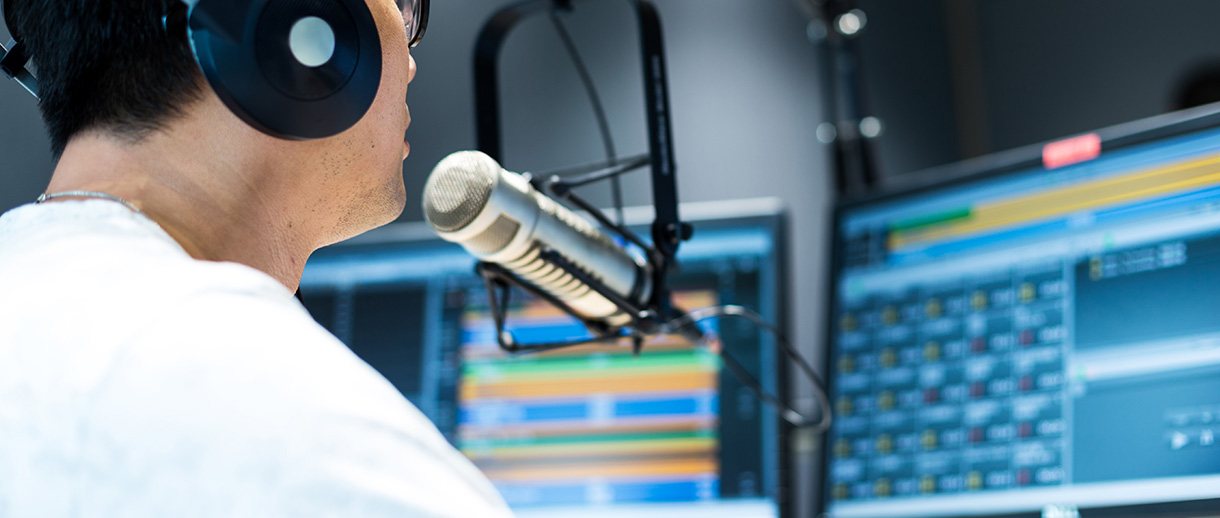
In an increasingly more interconnected world, the omnipresence of media can be both a boon and a bane. Before the smartphone age, India had its first ‘Tryst with Destiny’ with the humble radio and the broadcast of several significant historical events (including, of course, the then-Prime Minister’s historical speech), to go on to become a true democratiser of knowledge. In the many years since, the internet has certainly made strides in bridging information asymmetry and has made the world a slightly smaller and more accessible place for millions, creating as much information every two days as humanity had from the dawn of civilization till the year 2003.1
However, the multitude of data available will invariably lead to the proliferation of certain ‘undesirable’ content. To this end, on November 30, 2022, the FM Cell of the Ministry of Information and Broadcasting (“MIB”) issued an advisory to all FM radio channels to adhere to the terms of the Grant of Permission Agreement (“GOPA”) or the Migration Grant of Permission Agreement entered into by it, and to not broadcast any content in violation of these agreements (“Advisory”). While issuing the Advisory, the MIB took note of several FM radio channels broadcasting content and playing songs that “glorify alcohol/drugs/weaponry/gangster/gun culture, etc”. The Advisory further took note of the Hon’ble High Court of Punjab and Haryana’s comment on such content affecting “children of impressionable age. In addition, it gives rise to culture of gangsters.”
It is well settled that airwaves and frequencies are public property, with the Hon’ble Supreme Court of India in The Secretary, Ministry of Information & Broadcasting vs Cricket Association of Bengal & Anr. (1995 AIR (SC) 1236) holding that:
“Since the electronic media involves the use of the airwaves, this factor creates an in-built restriction on its use as in the case of any other public property…a citizen has a fundamental right to use the best means of imparting and receiving information and as such to have an access to telecasting for the purpose. However, this right to have an access to telecasting has limitations on account of the use of the public property, viz., the airwaves, involved in the exercise of the right and can be controlled and regulated by the public authority. This limitation imposed by the nature of the public property involved in the use of the electronic media is in addition to the restriction imposed on the right to freedom of speech and expression under Article 19 (2) of the Constitution.”2
Therefore, while the right to promulgate and to receive information is a fundamental right guaranteed under the Constitution of India, the right to use and make use of the national airwaves (being an object of public property), shall be subject to certain reasonable restrictions. The AIR Broadcast Code, for instance, doesn’t permit any content to be aired that targets any religious or other communities, or that causes any incitement to violence or is in derogation of the maintenance of law and order.3
A GOPA is issued by the MIB to all FM radio channels intending to offer broadcast services and is governed by the provisions of the Telecom Regulatory Authority of India Act, 1997, the Indian Telegraph Act, 1885 and the Indian Wireless Telegraphy Act, 1933. The GOPA sets forth the rights, responsibilities and penalties applicable to every FM radio channel/operator, including the fees payable for grant of the license, and certain restrictions on outsourcing the content it seeks to broadcast. Additionally, Clause 25.3 of the GOPA, as noted in the Advisory, empowers the MIB to impose sanctions, including ordering the suspension of the permission granted therein and prohibition of broadcast up to a period of 30 days, in the event that the permission holder violates any provision of the permission granted or any other provisions of the FM Radio policy.4
The Advisory finds the proliferation of music and content that ‘glorifies gangster culture’ to be contrary to the AIR Programme Code, which is stated to, therefore, be contrary to the terms of the GOPA granted to the FM radio operator. However, the language used in the Advisory is broad and vague, with few details regarding what sort of content will be deemed to be ‘glorification.’ Additionally, by using the temperament or disposition of children as the metric to measure the permissibility of content, rather than the ordinary man’s standard, the MIB has set out these restrictions basis a sensitive group, rather than setting standards for the general community. An exercise of the reasonable restrictions of Article 19 of the Constitution of India must be balanced with the interests of and for the people such actions seek to govern, which is any individual listening to the radio. Thus, it seems that, to quote the United States Supreme Court, “(a) nuisance may be merely a right thing in the wrong place, like a pig in the parlour instead of the barnyard…a pig has entered the parlour and the exercise of … regulatory power does not depend on proof that the pig is obscene”.5
1 The Atlantic, Quote of the Day: Google CEO Compares Data Across Millennia. Available at: https://www.theatlantic.com/technology/archive/2010/07/quote-of-the-day-google-ceo-compares-data-across-millennia/344989/.
2ibid.
3 Ministry of Information and Broadcasting, AIR Broadcast Code. Available at: https://mib.gov.in/sites/default/files/Air%20Broadcast%20Code.pdf.
4 Ministry of Information and Broadcasting, Format of the Grant of Permission Agreement. Available at: https://mib.gov.in/sites/default/files/fm8.pdf
5See FCC vs Pacifica Foundation (438 U.S. 726 (1978)), a judgement on the regulating that content aired on the radio, with a discussion on the impact it has on children.
















